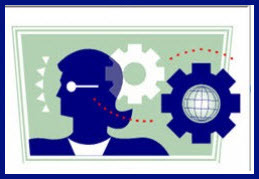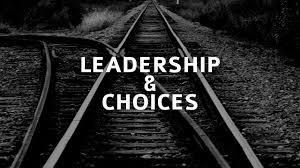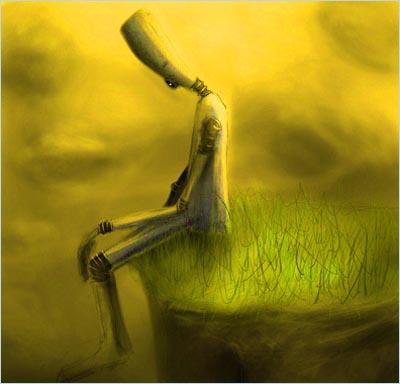‘The three great mysteries: Air to a bird, water to a fish, Man to himself.’
– A Hindu proverb
What are the kind of situations which bring out the worst of reactive thoughts in us? I offer a few personal examples here.
**
I am driving back from office. Mind laden with the ‘To do’ stuff for tomorrow, interspersed with unrelated thoughts from the past. I get yanked back to the ‘now and here’ by a black SUV suddenly crossing the lane from the wrong side. Slamming the brakes, I curse.

**
In a hurry to get back home, I rush into the Al Fair supermarket to pick up a few items which my wife had asked me to. Though the place seems fairly crowded with folks like me trying to squeeze in some grocery shopping, my check-out queue moves briskly till I reach second spot. It is then that the guy in front of me gets into a long drawn discussion with the counter lady on the intricacies of some redeemable voucher. Impatiently standing there, I see rage and anger building up inside me.

**
I notice an office colleague not complying with my instructions. When asked, he voices disagreement. I see this as trying to undermine me, or worse, an attempt to derail what I propose to do. I react by knit picking on the guy, by micro-managing at the activity level and in my anxiety to enforce, I end up hurting and demeaning. In all this, both of us have lost the big picture of what we had set out to achieve.

**
Now these are my examples but I can wager you would have seen one or more of these playing out in your own lives. So what is it really that brings up these reactions in us?
As I ponder over this question, I start seeing aspects of my own self-centeredness. A ‘Self centering’ that I am at the center of the world for myself and somehow my immediate needs and feelings should determine how things should operate in the world. A ‘Self centering’ which then becomes a slew of learned reactive thoughts and behaviours to make that happen. Reactive thoughts and behaviours which have got hard-wired within to the extent that it is now a default setting, a who I am wound up being.
So the guy who I am wound up being is now conditioned to curse when someone drives wrongly on the road. Or to get into a rage when someone delays completing some work. Or to hurt and demean when the other guy does not do things ‘my way’.
Chris Argyris, Professor Emeritus at Harvard Business School, and a Thought Leader at Monitor Group, after four decades of studying individuals and organisations, concluded that, ‘… people consistently act inconsistently, unaware of the contradiction between their espoused theory and their theory-in-use, between the way they think they are acting and the way they really act.’
In real life, we might be completely aware of the right and wrong way of speaking, dealing with people and behaving. But come a situation or someone else’s behaviour that triggers our inner hard wiring, our reactive self takes over, ready to protect our turf at any cost. The interesting thing is that post the event, we remain hardly aware of how our reactive behaviour and actions were so much in variance to what we generally believe our actions and behaviour to be. A veritable Dr. Jekyll and Mr. Hyde manifestation within us!
Have you ever wondered what makes it so hard for us to stop that reactive “Dr. Jekyll” self from taking over? This is because we mistake ‘Who we have wound up being’ as ‘Who we are’. This prevents us from seeing, as Chris Argyris surmised, the gap between the way we think we are acting and the way we really act. What is undistinguished begins to control us. Just like Air to the bird and Water to the fish!
So how could we start seeing the air and the water? What could we do to distinguish and remove all that acquired fluff of how we have wound up being to get down to the essence of who we are?
I believe we can make a start by holding the consciousness that we have a choice when confronted with a reaction generating situation or person. For example, what if I chose to think that the guy in that SUV who crossed the lane wrongly was rushing to the hospital where his wife was critically ill? What if I chose to believe that the guy trying to redeem those Al Fair vouchers was doing it to buy provisions for an orphanage? What if I chose to believe that the office colleague is as dedicated as me to achieve the overall objective?
The next step is to distinguish those aspects which have become part of ‘Who we have wound up being’. Read the language constructs below:
“ I Am….”
I am intelligent and smart.
I am disciplined and orderly.
I am competitive.
I am impatient with others.
I am a perfectionist and do not suffer fools.
“The way I wound up being….”
The way I wound up being is believing I am intelligent and smart.
The way I wound up being is disciplined and orderly.
The way I wound up being is competitive.
The way I wound up being is being impatient with others.
The way I wound up being is a perfectionist and who does not suffer fools.
What do you notice?
Do you notice that as the language construct shifts away from “I Am……” you gain the ability to distinguish the several traits you have acquired from who you intrinsically are?
Do you see that unlike the birds and the fishes, you are now able to discern the air and water around you?
Do you realise that you now have a choice?
***
There are these two young fish swimming along, and they happen to meet an older fish swimming the other way, who nods at them and says,” Morning, boys, how’s the water?” And the two young fish swim on for a bit, and then eventually one of them looks over at the other and goes,” What the hell is water?”
David Foster Wallace in ‘This is Water’, commencement speech, 2005
Acknowledgement:
“Being A Leader And The Effective Exercise Of Leadership: An Ontological / Phenomenological Model” by Werner Erhard, Independent & Michael Jensen, Jesse Isidor Straus Professor of Business Administration Emeritus, Harvard Business School.








